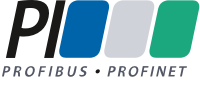Project
The chemist John S. Pemberton invented a new "medicine" called Coca-Cola in 1886. The consumption of Coca-Cola has increased steadily since then - more than 450 million soft drinks from Coca-Cola Company are now being drunk daily in more than 185 countries - and optimum production conditions are essential to be able to meet the high demand. This trend led HM Interdrink & Co. KG to install a new production line at their Mannheim site.
HM Interdrink needed an overall concept which is cost-optimized, reliable and productive. The chosen design uses PROFIBUS-DP for rapid cyclic data traffic and PROFIBUS-FMS for asynchronous data traffic with large amounts of data. The two protocols are used for different control levels in the production line.
Solution
The soft drink crates are transported by conveyor belt from the de-palleter to the sorting plant, where all the bottles are "unpacked" and sorted according to their old and future contents. Remote I/O stations collect all necessary process signals which are then sent to the PLC through PROFIBUS-DP. Variable-speed motor drives from the DANFOSS company which are controlled through PROFIBUS regulate the speed of the conveyor belts according to the actual production rate. Complicated send/receive routines within the control system are unnecessary - PROFIBUS-DP provides simple data transfer mechanisms which are optimized for the speed of the process. Each of the intelligent terminals, which are several hundred meters apart in some cases, appear to the PLC's just like directly attached I/O modules. The motor drives are controlled through data arrays within the PLC, which allows simple configuration of drive parameters such as ramp time, speed set point etc.
After passing the cap remover and "sniffer", the bottles are sent to the washing machine. The sniffer checks for contaminants within the bottles using laser-controlled measurements of conductivity, infrared and color. A sequence of washing baths in the washing machine ensure perfect hygiene of the bottles. The section after the washing machine is controlled by a second PLC which is supplied with process signals via PROFIBUS-DP and controls the transport speed of the conveyors using variable-speed motor drives. After the bottles are cleaned, the "inspector" checks them for correct size, deformation, leaks, damaged threads, color marks and other impairments. Each bottle is checked while moving using an image processing system and a stroboscopic lamp.
The "filler", which is the heart of the plant and controls the cycle speed of the entire production line, puts the respective soft drink into around 50,000 bottles per hour. This is done using a carousel with 154 filling stations, where the bottles are first filled with carbon dioxide to minimize the filling time. The resulting pressure equalization ensures that the soft drink can be filled into the bottles without eddies. The liquid level is controlled electronically from the conductivity of the product.
Each bottle is then labled with the production data. After passing through the "packer" and "palleter", the finished product can either be stored in the warehouse or shipped directly to the customer.
Conclusion
PROFIBUS has performed excellently! The simple commissioning, reliability during production, flexibility when extending or modifying the plant, additional features for fault analysis and last but not least the high cost/benefits ratio are decisive factors.
The PROFIBUS data transport is easy: a two-core twisted pair cable and a standard protocol mechanism are all that are needed to connect up a wide range of network stations such as PLC's, variable-speed motor drives, intelligent terminals and PCs. The standard interfaces which are provided guarantee trouble-free and fast communication without addition programming effort. PROFIBUS minimizes the installation effort with flexible, standardized and user-friendly protocols. The experience gained with the PROFIBUS fieldbus system led HM Interdrink to choose PROFIBUS again for other production lines.
Involved in the development of the system were Danfoss and Siemens.


